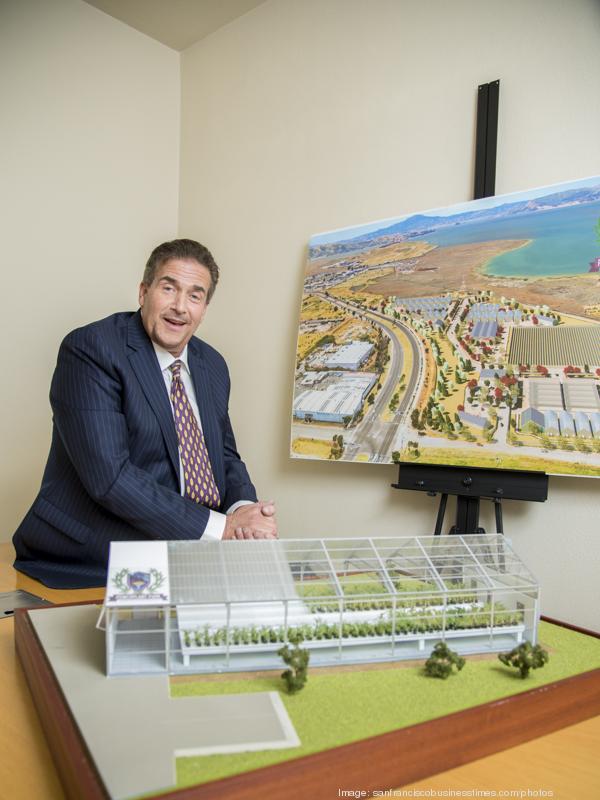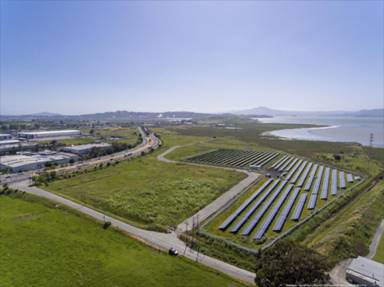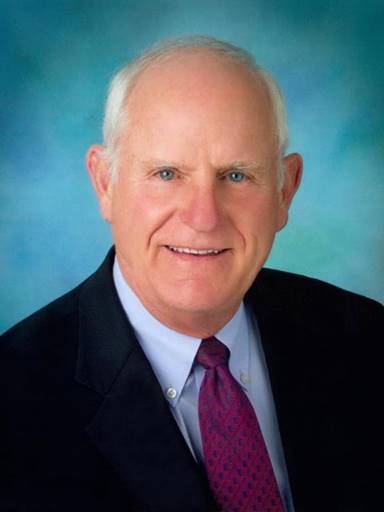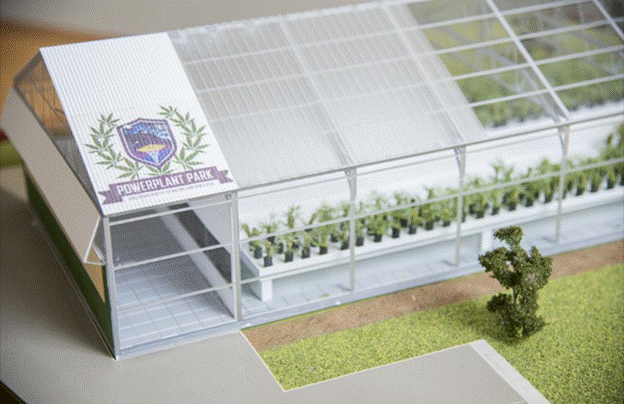|
| 
Richmond plants seed for cannabis grower project that could bring city hundreds of jobs and millions of dollars

Richard Treiber, president and founder of PowerPlant Inc.
Todd Johnson | San Francisco Business Times
By Alex Barreira – Editorial Intern, San Francisco Business Times
May 2, 2019, 7:11pm EDT
Entrepreneurs may no longer need to choose between San Francisco or Oakland to launch a venture in cannabis cultivation following Richmond’s approval of an 18-acre grow operation, PowerPlant Park, that will house 160,000 square feet of rentable canopy space.
PowerPlant Park will consist of an 824,000-square-foot campus featuring a manufacturing and processing facility, CO2 extraction lab, pre-roll assembly line, full-service restaurant, tasting rooms, an education center and a meeting hall.
It would would employ more than 500 people, becoming Richmond’s second-largest employer after Chevron. CEO Richard Treiber will act as landlord for 44 greenhouses where tenants can grow and sell product as licensed microbusinesses — the first cannabis business model of its kind in the state, and possibly the country.

PowerPlant Park in Richmond.
Todd Johnson | San Francisco Business Times
The development was unanimously awarded a conditional use permit by the planning commission on April 18, following a formidable approval process that stretched 2½ years and required $2.5 million worth of consultants. Despite the steep initial investment, Treiber said that working with the city “has been a dream, because they embrace the project.”
“It’s pretty nifty,” said Richmond’s mayor, Tom Butt, who for years has considered the tax boost commercial cannabis could bring to the city. Last year Richmond became one of the first in the state to regulate such businesses with a 5 percent tax.
In addition to the cannabis tax, Richmond will receive retail sales tax and property taxes. Employee wages will start at $27.50 per hour and PowerPlant will donate five percent of net profits to local schools and faith organizations. The company forecasts a first-year gross profit of $3.1 million and net profit of $1.5 million.
Mayor Butt was also sold on the project’s unique solution to a key challenge of cannabis cultivation: its enormous drain on energy resources for constant heat and climate control. That usage accounted for as much as 3 percent of the state’s total electricity usage, according to a 2012 Elsevier report. To prevent a drain on utilities, cannabis cultivators in Richmond are required to use 100 percent renewable energy.

Tom Butt, Mayor, the City of Richmond
City of Richmond
“When you use a greenhouse you’re getting 8-12 hours of free light and that can make the difference between whether a business is profitable or not,” Butt said. “Their model using greenhouses is the wave of the future.”
Treiber is also in negotiations to purchase a 2 megawatt solar farm adjacent to the North Shoreline property that would cover the park’s energy needs and allow PowerPlant to function as its own quasi-utility, selling excess solar power back to utilities and to tenants at a significantly reduced rate, and make the operation as a whole carbon negative.

PowerPlant Park model.
Todd Johnson | San Francisco Business Times
The idea originated from the project’s lead architect, Andrew Butt, vice president of local firm Interactive Resources and son of mayor Tom.
“Having a net-zero carbon facility and demonstrating that it can be feasible could lead others to try this as well,” Andrew said. “(Cannabis) is such a highly regulated market type, and they need all the help they can get.”
PowerPlant anticipates a “green rush” of investment in cannabis production that’s been estimated to generate as much as $44 billion nationwide by 2020. In January, comprehensive statewide regulations for cannabis businesses went into effect, laying the groundwork for investment following the temporary emergency regulations in place since 2016 when voters approved legalization of recreational marijuana for adults.
With relatively affordable land, Richmond is poised to attract cannabis investment that might otherwise go to San Francisco or Oakland, which have more licensed cannabis retailers but are cracking down on illegal grow operations.
Treiber, who set up camp in Richmond after initially striking out in Oakland, is ready to welcome those looking for a fresh start. He estimated that it’s faster and less expensive for growers to “go legal” and rent greenhouse space in PowerPlant than navigating limited space options and regulatory burdens of other Bay Area cities.
“There’s no rentable space in the Bay Area (like this),” Treiber said. “And there’s a ton of growers looking for space.”
Construction of each “canna-condo” will begin at will with each lease agreement. Treiber said he has already secured eight pre-lease agreements and hopes to complete the first phase of construction — which will include the nursery, restaurant and conference center — by August, and the second phase by the end of the year.
|

